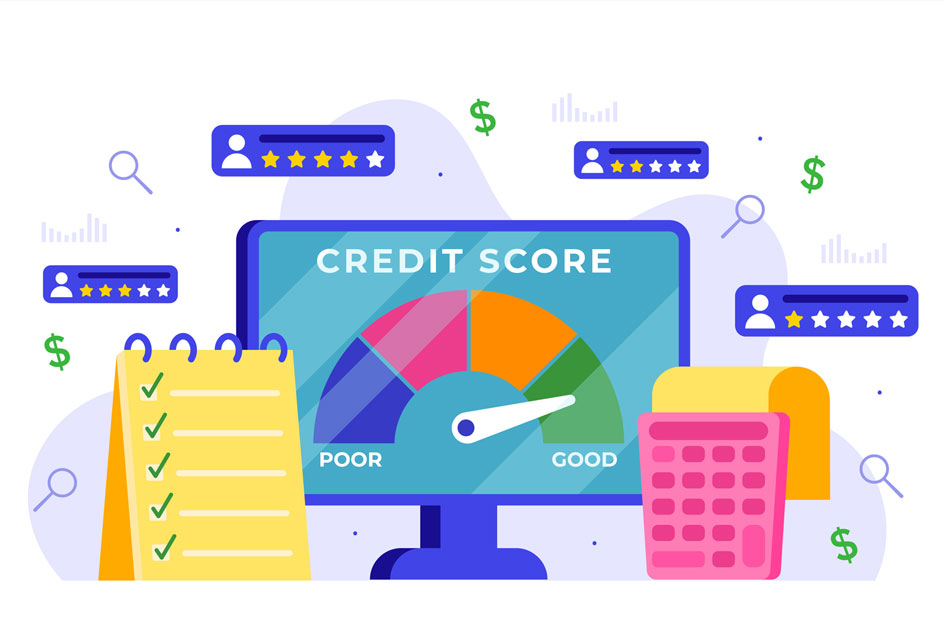Taking out a personal loan often reduces financial stress on a certain level, but by no means does this mean you’ll get the best available interest rate, fees, and repayment terms. Sometimes, having more options in hand in a negotiation can add up to a more significant difference in the total cost and its impact on your finance budget. With the proper approach, negotiation can allow one to get better terms suited to one situation, save money, and manage the loan effectively. Let’s find out how to negotiate better terms on your loan.
Know Your Financial Profile
Knowing how much money you have is the first condition to getting a better loan deal because your current financial position also contributes to the type of risk you pose to the lender. Most lenders will tell you that your credit score, debt-to-income, or employment history influence your loan terms. Higher credit scores and lower DTI indicate to lenders that you are an honest borrower, hence the propensity towards giving you competitive terms.
If you have a score lower than perfect, you might want to do whatever it takes to raise your credit score before applying for a loan. Some general ways to improve your score include paying off current debt, ensuring all accounts accessible through credit are up to date, and not opening any new accounts when you apply for the loan. A stable job and regular income enhance your credit profile by signifying you can pay consistently and on time. So, take some time to collect financial documents proving you are a responsible payer: recent pay stubs, bank statements, and tax returns.


Do Your Homework on Lenders
Not all lenders offer the same terms, so do your homework before deciding on one. Each of them provides different terms concerning loan conditions. Traditional banks may give low interest rates to frequent customers, but others are stricter in their credit requirements. Online lenders tend to be cheap with rates, and the credit union may offer competitive rates while perhaps being willing to be flexible with members on more individualized terms, especially for long-time membership holders. Online lenders can be more lenient or convenient but may offer a broader range of interest rates and conditions based on your creditworthiness.
Compare the interest rates and fees among lenders. They should also include the terms of repayment and penalties when the loan is paid off before time is due. This is quickly done using online loan comparison tools. This research can be your bargaining power and let you know what would be reasonable to negotiate for in negotiations with lenders. The more you know about the market, the stronger you stand.
Target Sought Terms on Negotiation With that feel of the market, go to lenders seeking specific terms. The best first ask is to discuss a lower interest rate because that directly impacts the total cost of the loan. Lenders usually set the interest based on the credit score of the homeowner. So, if your credit score is good, you are in an excellent position to ask for a reduction in interest rate.
The loan term should also be considered. More prolonged periods mean relatively smaller repayments but possibly more significant amounts of interest paid in total over the life of the loan. On the other hand, a shorter loan period saves in terms of interest, but the monthly repayments will be more significant. Negotiate a term that balances affordability with the total cost.
All fees and penalties are also negotiable. Some lenders charge origination fees, processing fees, and prepayment penalties. The origination fee is a one-time processing charge for the loan; it could be a considerable charge at the onset. Ask the lender if they can reduce or waive those fees if you have a solid financial profile. If you think you’ll pay off the loan early, ask them if they can waive the prepayment penalties.
Use Your Credit Score as a Bargaining Chip
If you have a good credit score, it’s excellent bargaining power. Because your score is good, the lender knows you are a low-risk borrower and will, therefore, be less concerned with the default aspect of lending. When dealing with the lender, highlight your score as the basis on which you merit a more favorable interest rate; then advise the lender of competing offers you might have received. Many lenders want to top or beat another lender’s terms to get you as their customer.
If your credit score is not exceptional but has recently seen progress, let the lender know you control debt. This would present you as a more manageable risk to lenders; the bank might desire such a customer even better than they otherwise would.
Think of Collateral If Need Be to Better Loan Offers
You can also include collateral, which can be your car, savings account, or other valuable assets you may possess. This type of secured loan is much less risky for the lender, meaning they will likely want to limit fees or have lower rates. Secured loans usually have a lower interest rate than unsecured loans due to the possibility of some recourse for the lender to get back the amount in the event of a default.
This, however, has the risk of losing the asset if you do not repay the loan. You should do this only when you are confident of repaying the loan within its repayment time and when the saved interest or other terms merit the increased risk.
Demonstrate Stability in Financials
Lenders like to see that you are a borrower with stable finances who will not pose a problem managing your loan payments. Evidence of financial security can be recent pay stubs, a history of bank statements, and a good debt-to-income ratio. If you have rental income or investments, include those in your financial profile. This is evidence of financial responsibility, which could get a borrower better terms on their loan from a lender.
Make the Most of Pre-Approval Offers from Competitors
If you have an approved loan from another lender with perfect terms, use that as leverage to be negotiated with your preferred lender. Mention this pre-approval to your preferred lender and ask them if they can match or beat it. Lenders hate losing a potential client to one of their competitors, especially since your credit profile is sound. Some of these offers will likely include further checks, so ensure you clarify the pre-approval terms.
Instil Confidence and Persistence in Loan Negotiation
Handling a loan negotiation can be so intimidating, but the truth is that maintaining confidence is what separates getting the loan from failing to get it. Be clear about your needs, and not afraid to question or clarify if necessary. Should the lender deny your requirements at first, remind them of your merits, such as having a good credit score, the stability of finances, or being a repeat customer. In the extreme, know when to walk away. Sometimes, the threat of taking your business elsewhere is all lenders need to reconsider their terms.
Review Final Loan Terms Carefully
Once you have agreed on the terms, read through the loan documentation. Ensure that the interest rate, fees, loan term, and any flexibility options negotiated are included. If there is something in the contract you don’t understand, get clarification from the lender before signing it. This way, you know all the terms, are safe from uncertain costs, and can make the deal you fought for.
Negotiating favourable terms on a personal loan is challenging but easily accomplished with proper preparation. Understanding your financial profile, researching various lenders, focusing on key terms, and presenting your case confidently can yield a loan that suits your needs and financial goals in ideal terms and conditions. Take control, stand firm on your request with better offers, and fight off any attempt to take you for granted. Under the right conditions, you can make your loan work for you, cutting costs and easing repayment, which frees up your resources for what’s truly important: achieving your financial objectives.






